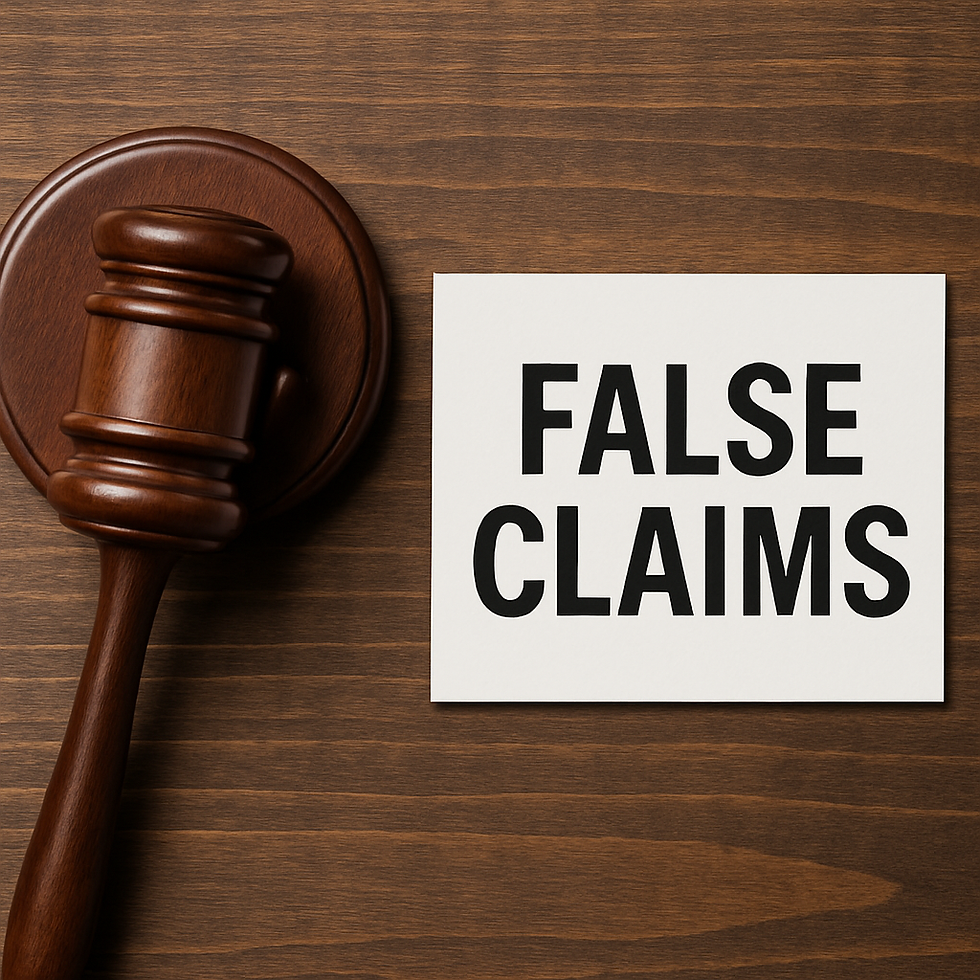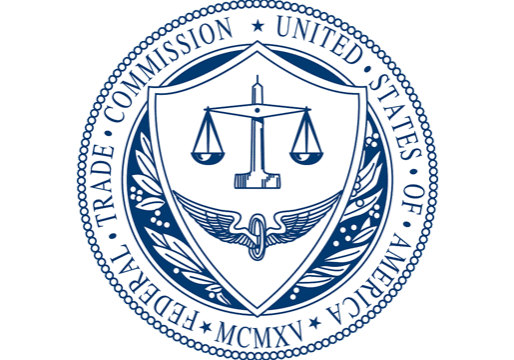Exposing the Truth: Recent Lawsuits Over False and Misleading Claims in Oral Care Product Advertising
- Evan Howard
- May 1, 2025
- 5 min read
The oral care industry is extremely competitive, with brands vying for consumer trust through bold claims about whiter teeth, cavity protection, and even broader health benefits. But as consumers become more discerning and regulators more vigilant, several major oral care products and companies have found themselves at the center of lawsuits alleging false or misleading advertising. These cases shine a light on the importance of truth in marketing and the real-world consequences when companies cross the line.

Aspen Dental: Deceptive “Free” Services and Insurance Claims
One of the most significant recent cases involved Aspen Dental, a national dental care provider with dozens of locations across Massachusetts. In a lawsuit brought by the Massachusetts Attorney General’s Office, Aspen Dental was accused of running a “multi-faceted scheme” to deceive consumers through a series of bait-and-switch advertising campaigns. The claims centered on Aspen Dental’s promotion of certain dental services as “free” including new patient exams, x-rays, and oral cancer screenings-only for patients to later be charged for those services. The company also advertised that it accepted “all” insurance, when in reality it did not accept MassHealth, the state’s Medicaid dental program.
The settlement, reached in January 2023, required Aspen Dental to pay $3.5 million, with up to $750,000 earmarked for patients who paid for services that were supposed to be free. The court also imposed strict restrictions on Aspen Dental’s future advertising, prohibiting misleading offers of free services, blanket insurance acceptance claims, and vague references to “no hidden fees.” This high-profile case underscores how deceptive advertising can harm vulnerable patients seeking affordable dental care and how state regulators are willing to pursue substantial penalties to protect consumers.
Snow Teeth Whitening: COVID-19 Protection & Blue Light Claims
Another headline-grabbing lawsuit targeted Snow Teeth Whitening LLC, a company known for its LED-based teeth-whitening systems. In a class action filed in New York federal court, the plaintiff alleged that Snow Teeth engaged in false advertising by claiming its whitening product could prevent infection-including COVID-19-thanks to its blue and red light technologies. The suit also challenged claims that the company’s proprietary whitening serum was exclusive to Snow and that its celebrity endorsements implied unique health benefits.
Although the case was ultimately dismissed because the plaintiff had not purchased the product before filing the claim and could not prove reliance on the allegedly misleading ads, the lawsuit drew attention to the risks of leveraging public health fears in marketing. Snow Teeth’s advertisements suggested that using their blue light device with hydrogen peroxide could protect against germs and bacteria, and that a red light option would prevent infection. Even though the court did not rule on the merits of the advertising itself, the case serves as a warning to oral care brands about the dangers of making unsupported health claims in their marketing.
Children’s Toothpaste and Mouth Rinse: Crest, Colgate, Tom’s of Maine, and Act
The children’s oral care market has also come under legal scrutiny, with a wave of class action lawsuits filed in early 2025 against leading brands such as Crest, Colgate (including Tom’s of Maine), and Act mouth rinse. These suits allege that the companies made misleading claims about the safety and benefits of their fluoride toothpaste and mouth rinses for children. Plaintiffs argue that the promotional materials overstated the products’ ability to prevent cavities and improve dental health, while allegedly failing to adequately warn about potential risks-particularly the risk of dental fluorosis, a condition caused by excessive fluoride intake during tooth development.
The lawsuits contend that parents were led to believe these products were uniquely safe and effective for their children, when in fact the risks and benefits were not fully disclosed. As these cases progress, they highlight the heightened responsibility oral care brands bear when marketing to children and families, and the legal risks associated with overstating product benefits or omitting material safety information.
Hello Toothpaste: Allegations of Misleading Promotional Materials
Hello Toothpaste, a brand that has positioned itself as a natural and friendly alternative in the oral care aisle, is also facing legal challenges. Recent filings argue that Hello’s promotional materials were misleading and could contribute to dental damage, particularly in users who relied on the company’s marketing over established dental advice. While the specifics of the claims are still unfolding, the lawsuits focus on whether Hello’s advertising accurately represented the efficacy and safety of its toothpaste, and whether it made unsupported claims about being better for oral health than traditional competitors.
This case illustrates the unique challenges faced by brands that market themselves as “natural” or “clean.” With consumers increasingly seeking out products free from certain chemicals or additives, companies must ensure that their advertising is not only aspirational but also grounded in scientific evidence. As the legal process continues, the outcome will likely influence how natural oral care products are marketed in the future.
Industry-Wide Implications and Regulatory Vigilance
These lawsuits are not isolated incidents-they reflect an industry-wide reckoning with the standards of truth in advertising. The Federal Trade Commission (FTC) and Food and Drug Administration (FDA) both play active roles in monitoring and enforcing advertising regulations for oral care products. The FTC, in particular, requires that all health-related claims be substantiated by reliable scientific evidence and that advertising not omit material facts that could mislead consumers.
When companies cross the line, the consequences can be severe: multimillion-dollar settlements, court-ordered changes to advertising practices, and lasting reputational damage. For consumers, these cases reinforce the importance of skepticism and the need to look beyond marketing claims, especially when it comes to products that impact health and well-being.
The Evolving Legal Landscape for Oral Care Advertising
As the oral care market continues to grow, so too does the complexity of advertising claims and the legal scrutiny they attract. From “free” dental services that aren’t truly free, to bold promises about infection protection or natural ingredients, the line between persuasive marketing and deceptive advertising can be thin. Courts and regulators are increasingly willing to hold companies accountable when their claims mislead consumers or fail to disclose important information.
For oral care brands, the lesson is clear: invest in rigorous scientific substantiation for all health-related claims, be transparent about product limitations, and avoid overstating benefits in pursuit of market share. For consumers, these lawsuits serve as a reminder to read the fine print, seek out independent reviews, and consult dental professionals before relying on marketing messages alone.
Truth in Oral Care Advertising Matters
The recent wave of lawsuits against Aspen Dental, Snow Teeth Whitening, children’s toothpaste brands like Crest and Colgate, and Hello Toothpaste underscores the critical importance of truth in advertising within the oral care industry. As regulators and consumers demand higher standards, companies must ensure that every claim is backed by solid evidence and communicated with honesty and clarity. The stakes are high-not just in terms of legal liability, but in the trust and health of the millions of people who rely on these products every day. As the legal landscape evolves, one thing remains constant: integrity in advertising is essential for building lasting consumer confidence in oral health products.
Howard Law is a business, regulatory and M&A law firm in the greater Charlotte, North Carolina area, with additional services in M&A advisory and business brokerage. Howard Law is a law firm based in the greater Charlotte, North Carolina area focused on business law, corporate law, regulatory law, mergers & acquisitions, M&A advisor and business brokerage. Handling all business matters from incorporation to acquisition as well as a comprehensive understanding in assisting through mergers and acquisition. The choice of a lawyer is an important decision and should not be based solely on advertisements. The information on this website is for general and informational purposes only and should not be interpreted to indicate a certain result will occur in your specific legal situation. Information on this website is not legal advice and does not create an attorney-client relationship. You should consult an attorney for advice regarding your individual situation. Contacting us does not create an attorney-client relationship. Please do not send any confidential information to us until such time as an attorney-client relationship has been established.


Comments